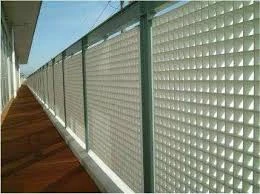
-
 Afrikaans
Afrikaans -
 Albanian
Albanian -
 Amharic
Amharic -
 Arabic
Arabic -
 Armenian
Armenian -
 Azerbaijani
Azerbaijani -
 Basque
Basque -
 Belarusian
Belarusian -
 Bengali
Bengali -
 Bosnian
Bosnian -
 Bulgarian
Bulgarian -
 Catalan
Catalan -
 Cebuano
Cebuano -
 China
China -
 China (Taiwan)
China (Taiwan) -
 Corsican
Corsican -
 Croatian
Croatian -
 Czech
Czech -
 Danish
Danish -
 Dutch
Dutch -
 English
English -
 Esperanto
Esperanto -
 Estonian
Estonian -
 Finnish
Finnish -
 French
French -
 Frisian
Frisian -
 Galician
Galician -
 Georgian
Georgian -
 German
German -
 Greek
Greek -
 Gujarati
Gujarati -
 Haitian Creole
Haitian Creole -
 hausa
hausa -
 hawaiian
hawaiian -
 Hebrew
Hebrew -
 Hindi
Hindi -
 Miao
Miao -
 Hungarian
Hungarian -
 Icelandic
Icelandic -
 igbo
igbo -
 Indonesian
Indonesian -
 irish
irish -
 Italian
Italian -
 Japanese
Japanese -
 Javanese
Javanese -
 Kannada
Kannada -
 kazakh
kazakh -
 Khmer
Khmer -
 Rwandese
Rwandese -
 Korean
Korean -
 Kurdish
Kurdish -
 Kyrgyz
Kyrgyz -
 Lao
Lao -
 Latin
Latin -
 Latvian
Latvian -
 Lithuanian
Lithuanian -
 Luxembourgish
Luxembourgish -
 Macedonian
Macedonian -
 Malgashi
Malgashi -
 Malay
Malay -
 Malayalam
Malayalam -
 Maltese
Maltese -
 Maori
Maori -
 Marathi
Marathi -
 Mongolian
Mongolian -
 Myanmar
Myanmar -
 Nepali
Nepali -
 Norwegian
Norwegian -
 Norwegian
Norwegian -
 Occitan
Occitan -
 Pashto
Pashto -
 Persian
Persian -
 Polish
Polish -
 Portuguese
Portuguese -
 Punjabi
Punjabi -
 Romanian
Romanian -
 Russian
Russian -
 Samoan
Samoan -
 Scottish Gaelic
Scottish Gaelic -
 Serbian
Serbian -
 Sesotho
Sesotho -
 Shona
Shona -
 Sindhi
Sindhi -
 Sinhala
Sinhala -
 Slovak
Slovak -
 Slovenian
Slovenian -
 Somali
Somali -
 Spanish
Spanish -
 Sundanese
Sundanese -
 Swahili
Swahili -
 Swedish
Swedish -
 Tagalog
Tagalog -
 Tajik
Tajik -
 Tamil
Tamil -
 Tatar
Tatar -
 Telugu
Telugu -
 Thai
Thai -
 Turkish
Turkish -
 Turkmen
Turkmen -
 Ukrainian
Ukrainian -
 Urdu
Urdu -
 Uighur
Uighur -
 Uzbek
Uzbek -
 Vietnamese
Vietnamese -
 Welsh
Welsh -
 Bantu
Bantu -
 Yiddish
Yiddish -
 Yoruba
Yoruba -
 Zulu
Zulu
tank fiberglass
The Benefits of Fiberglass Tanks in Modern Applications
In recent years, the use of fiberglass tanks has gained significant traction across various industries due to their remarkable properties and versatility. Fiberglass, a composite material made from fine glass fibers and resin, boasts several advantages over traditional materials like concrete and metal. This article explores the merits of fiberglass tanks, their applications, and their increasing prevalence in modern infrastructure.
Durability and Longevity
One of the most compelling aspects of fiberglass tanks is their durability. Unlike metal tanks, which can corrode over time due to exposure to water and various chemicals, or concrete tanks that may crack or degrade, fiberglass tanks are resistant to rust, corrosion, and decay. This resistance is particularly beneficial in environments where harsh chemicals or corrosive substances are present. As a result, fiberglass tanks can last for decades, providing long-term value and reducing the need for frequent replacements or repairs.
Lightweight and Easy to Install
Another advantage of fiberglass tanks is their lightweight nature compared to traditional materials. This characteristic significantly eases the handling and installation process. The reduced weight means lower shipping costs and less labor during installation, which can be crucial during large-scale projects. Additionally, fiberglass tanks can often be installed quickly and efficiently, minimizing downtime for facilities that require immediate tank setup.
Customizability
Fiberglass tanks offer immense flexibility in terms of design and size. Manufacturers can easily tailor these tanks to meet specific requirements, accommodating various capacities and shapes to fit diverse applications. This customizability is particularly advantageous for industries that need specialized solutions, such as water treatment plants, chemical storage facilities, or agricultural enterprises. By meeting unique specifications, fiberglass tanks can enhance operational efficiency and effectiveness.
Resistance to Environmental Factors
tank fiberglass

Fiberglass tanks are designed to withstand extreme weather conditions and temperature fluctuations. They can be manufactured to provide insulation against temperature changes, making them suitable for applications in hot or cold climates. This resistance to environmental factors ensures that the contents of the tanks remain stable, which is especially critical for industries like agriculture where consistent conditions can affect crop yields.
Eco-Friendly Choice
As eco-consciousness continues to grow, the environmental benefits of fiberglass tanks have become increasingly salient. Many fiberglass tanks are made from recycled materials, making them an appealing choice for companies looking to minimize their carbon footprint. Additionally, the longevity and durability of these tanks contribute to sustainability, reducing waste from frequent replacements of less durable materials.
Versatile Applications
Fiberglass tanks are utilized in numerous sectors, illustrating their versatility. In the agricultural field, they are commonly used for storing fertilizers and other chemicals, and their ability to resist corrosion ensures that the stored materials remain uncontaminated. In the water treatment industry, fiberglass tanks are essential for both storage and treatment processes, providing a reliable solution for various water-related tasks.
Furthermore, the chemical industry heavily relies on fiberglass tanks for storing corrosive substances safely. Their resistance to chemicals makes them ideal for holding acids, bases, and other hazardous materials without the risk of degradation. In the oil and gas industry, fiberglass tanks are increasingly used for storing fuel and chemicals, utilizing their lightweight and corrosion-resistant properties to enhance safety and efficiency.
Conclusion
The rising popularity of fiberglass tanks can be attributed to their numerous advantages over traditional storage solutions. Their durability, lightweight nature, customizability, resistance to environmental factors, eco-friendliness, and versatility make them an ideal choice for various applications across industries. As technological advancements continue to improve the manufacturing processes of fiberglass materials, it is likely that the use of fiberglass tanks will become even more prevalent, solidifying their role in modern infrastructure.
In summary, fiberglass tanks represent a significant advancement in storage technology, providing reliable, efficient, and sustainable solutions for the challenges faced by many industries today. As we move forward, their adoption will likely expand, showcasing their importance in creating a more sustainable and resilient future.









